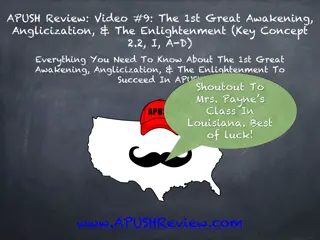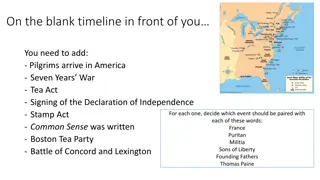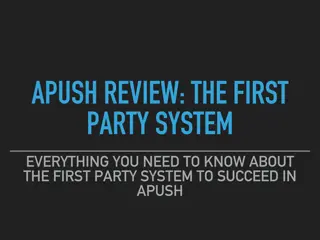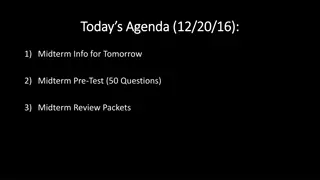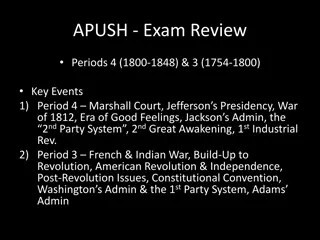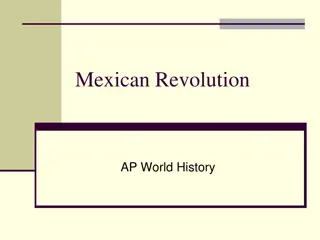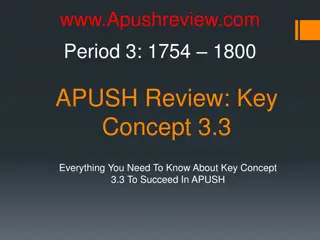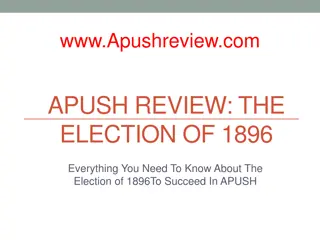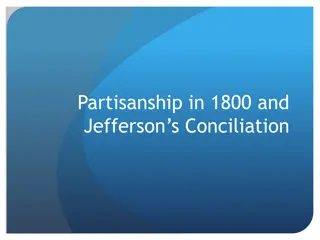
Succeed in APUSH: Election of 1800 and Key Issues
Explore the significance of the Election of 1800 in APUSH, including the peaceful transition of power, economic issues between Federalists and Democratic-Republicans, foreign policy changes, and the Judiciary Act of 1801. Dive into the differences in interpretation approaches and the impact on early American politics and governance.
Download Presentation

Please find below an Image/Link to download the presentation.
The content on the website is provided AS IS for your information and personal use only. It may not be sold, licensed, or shared on other websites without obtaining consent from the author. If you encounter any issues during the download, it is possible that the publisher has removed the file from their server.
You are allowed to download the files provided on this website for personal or commercial use, subject to the condition that they are used lawfully. All files are the property of their respective owners.
The content on the website is provided AS IS for your information and personal use only. It may not be sold, licensed, or shared on other websites without obtaining consent from the author.
E N D
Presentation Transcript
Election of 1800: Jefferson (Democratic-Rep.) v. John Adams (Federalist) Why is it called a revolution? Peaceful transition of power from the Federalists to the Democratic-Republicans First time there was a change in political parties Was this revolution really a revolution? Let s find out
Biggest economic issue between Federalists and Democratic-Republicans? Hamilton s Financial Plan Hamilton s Financial Plan: BUS Tariff Excise Tax Assumption and funding at par Which did Jefferson get rid of? Only the excise tax Was there a drastic economic change during Jefferson s administration? For the most part, NO. Embargos were instituted
Federalists (Hamilton and Adams) traditionally supported the British Democratic-Republicans (Jeffersonians) traditionally supported the French XYZ Affair and Quasi-War left US-French relations strained Did Jefferson stay Pro-French? Embargo Act of 1807 ended all trade with foreign countries Favored neither the French or British Was there a drastic foreign policy change? No! Avoided entangled alliances
Judiciary Act of 1801: Last-ditch effort to appoint Federalist judges Midnight Judges Marbury v. Madison(1803) Jefferson sought to refuse appointment of Marbury Midnight Judge Supreme Court declared a federal law unconstitutional for the first time Was this revolutionary? Yes! Judicial Branch becomes more powerful
Loose Interpretation (Federalists): The Constitution would be broadly interpreted Strict Interpretation (Jeffersonians): Unless it s mentioned in the Constitution, it could not be done (Example: BUS) Did Jefferson stay true to strict interpretation? NO! He favored a loose interpretation for the LA Purchase
To what extent was the election of 1800 aptly named the Revolution of 1800? Respond with references to TWO of the following areas: Economics Foreign Policy Judiciary Politics (2004 Form B) Was it aptly named? In some cases, yes, in some cases, no
Subscribe to my channel Help spread the word Questions? Comments? Leave in comments One thing we can agree on? You should subscribe!



